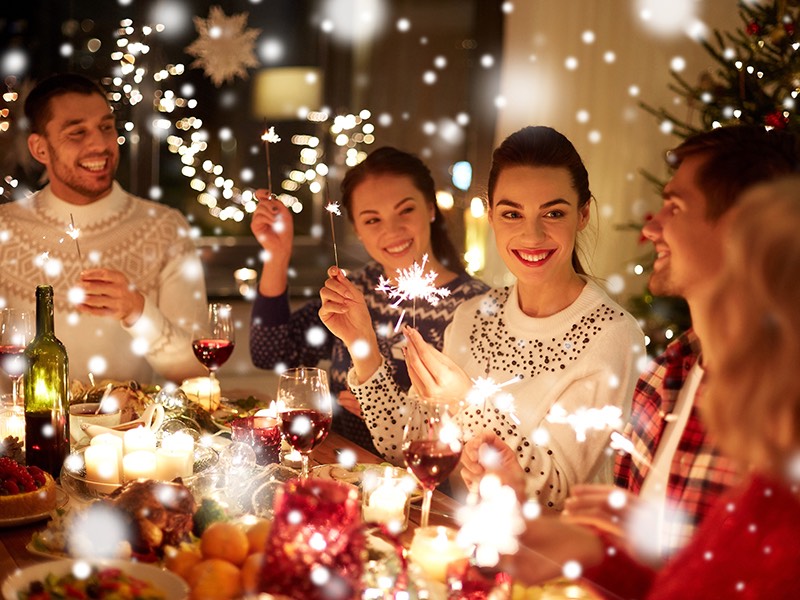An epidemiologist’s guide to safely celebrating the holiday season

If you are planning a holiday event involving those at higher risk, limit your exposure the week before — even if you’re vaccinated, said Tulane University epidemiologist Susan Hassig. Photo by Shutterstock.
Now that COVID-19 vaccines are widely available and mask mandates and restrictions on gatherings are no longer in place in many areas, is this the year that Thanksgiving and the holidays return to normal?
It’s a question on many people’s minds as they plan for festive parties and big family dinners to make up for last year’s muted holiday season. At the same time, COVID-19 is still circulating in the United States — and cases are rising in Europe despite high vaccination rates. How should people consider their risks as they begin to gather and celebrate the season with friends and family?
Tulane University epidemiologist Susan Hassig spoke with Tulane’s On Good Authority podcast about how to be COVID-19 safe during the holidays. Hassig answers questions about what to consider before having a multigenerational event, whether it’s appropriate to enforce a vaccine policy for family gatherings and why timing one’s social calendar will be critical for reducing risks in the weeks ahead.
One key takeaway is, if you are having an event involving those at higher risk, limit your exposure the week before — even if you’re vaccinated.
“Everybody that's coming to the party is bringing their behavior for the last week into the party space, whether they're vaccinated or unvaccinated,” she said.
Her advice is to be mindful of how many people you’re circulating around — and how it may affect those most vulnerable to the virus.
“I think it's a matter of setting priorities in terms of which events you want to invest. My nightmare is someone who is doing a whole series of all sorts of parties, one right after another, leading up to Thanksgiving or to Christmas,” Hassig said. “That is a kind of situation where there is a possibility of exposure and then they would potentially bring that into the family gathering.”
To listen to the full podcast, click below.
